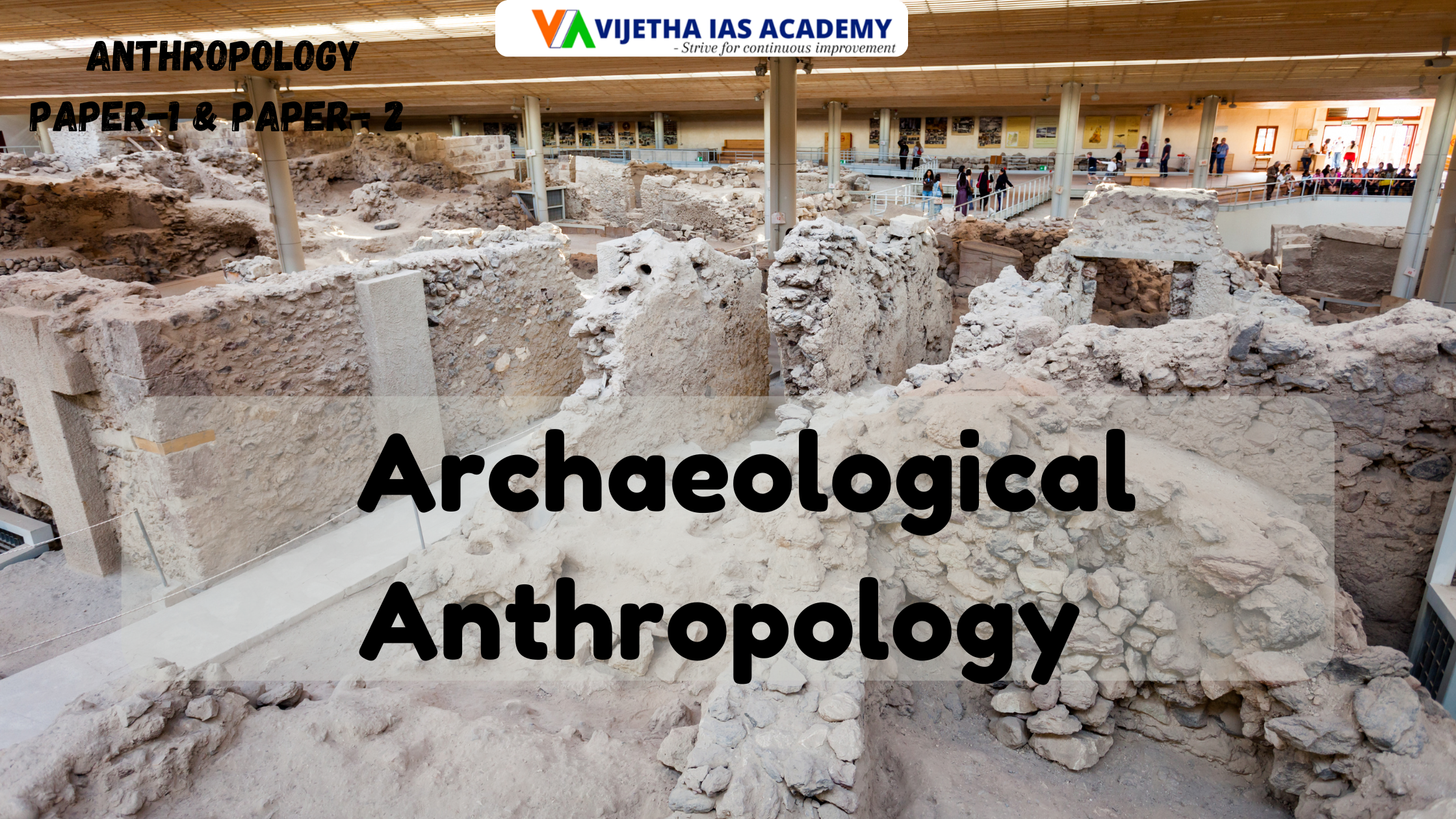
Introduction:
Meaning: Archaeological Anthropology studies archaeological aspects of human beings from past to present. It aims to reconstruct past human behavior, cultural evolution, and the development of civilizations by analyzing artifacts , structures, and other physical evidence left by ancient societies.
Scope
Archaeological Anthropology studies human past from both biological and sociocultural perspectives.
The primary objective is to study human beings from past to present from all dimensions
It involves the study of prehistoric, text free. text aided, salvage archaeological anthropology and ethnoarachealogy
Approaches of the study
Finding the sites: Systematic digging at archaeological sites to uncover material remains like fossils, artefacts,ecofacts and features based on existing knowledge, documentary evidences and accidental discoveries.
Surveying and Analysis: Mapping the locations of archaeological sites and features within a landscape by aerial or ground surveying.
Dating Techniques to estimate the geological time scale: Using relative and absolute dating methods like stratigraphy, chemical analysis, seriation, radiocarbon dating, amino acid racemization, and thermoluminescence to determine the age of artefacts and structures.
Significance in Anthropology:
Archaeological Anthropology gives long-term perspective on human biological and cultural evolution, allowing anthropologists to trace the development of human societies from simple hunter-gatherer groups to post industrailsed societies.
It contributes to the understanding of bio cultural continuity and change, migration patterns, and interactions between different cultures societies over time.
Key Concepts and Theories:
Evolutionary Perspective: The application of evolutionary theory to understand the development of human evolution, cultures, behavior and societies.
Ethnoarachaeological study: Studying contemporary societies to reconstruct the past
Processual Archaeology: Processual archaeology emphasizes scientific qualitative methods and ecological factors in understanding human societies, while post-processual archaeology focuses on human agency, symbolism, and the interpretive aspects of culture.
Relevance to Contemporary Issues:
- Archaeological anthropology helps in the preservation of cultural heritage like monuments, tools and informs modern-day conservation efforts.
- It helps in constructing biocultural realms of human beings.
- It provides insights into the origins and development of current social practices and environmental challenges, contributing to the understanding of long-term human-environment interactions.
- It also helps in development of script for those languages which do not have one.
Conclusion:
Archaeological Anthropology plays a crucial role in bridging the gap between the past and the present, offering valuable insights into the evolution of human beings and their societies. By studying the material remains of past cultures, it enhances our understanding of human evolution, prehistory, history, cultural diversity, and the factors that have shaped the development of civilizations over millennia. Its interdisciplinary approach, interpretative approach, logico deductive reasoning and methodological approach make it an indispensable field within Archaeological Anthropology, contributing to both academic knowledge and practical applications of the journey of human kind.
